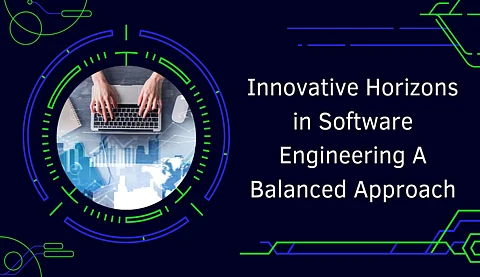

In this modern era, software engineering and architecture have undeniably transformed the global landscape, driving innovation and addressing critical societal challenges. Karthik Akinepalli, a distinguished researcher, explores the intricate dynamics of these disciplines, emphasizing their profound influence across economic, social, ethical, and environmental domains. Through his work, he highlights the pivotal role of software engineering in shaping a sustainable and equitable future, bridging technological advancements with the pressing needs of society.
Software engineering has emerged as a cornerstone of global economic growth. The sector has not only fueled job creation but also catalyzed innovation and productivity. Modern automation technologies, powered by advanced software systems, have revolutionized industries, from healthcare to manufacturing, optimizing workflows and enhancing operational efficiency. These advancements have led to substantial efficiency gains and improved service delivery across sectors. Furthermore, continuous learning has become indispensable, prompting education systems worldwide to adapt and bridge skill gaps, ensuring a workforce prepared to navigate emerging technological trends. Initiatives such as specialized courses and boot camps play a pivotal role in aligning workforce capabilities with the demands of a rapidly evolving digital economy.
The impact of software on societal structures is transformative, revolutionizing global connectivity, education, and healthcare. Software systems have redefined accessibility and inclusivity, with social media and communication platforms fostering cross-cultural collaboration and instant information sharing. E-learning platforms and remote healthcare technologies highlight the sector’s role in democratizing essential services. Resources like massive open online courses (MOOCs) and adaptive learning tools have expanded opportunities for underrepresented communities and individuals with disabilities. Yet, challenges like the digital divide persist, necessitating collaborative efforts from policymakers and technologists to ensure software systems uplift society, bridging gaps rather than creating barriers.
With its permeation into everyday life, ethical consideration[s] are nowadays being highlighted. The big fear about technological progress at the moment is over surveillance and data privacy, algorithmic bias and job displacement due to automation. The data collection practice lacks transparency and creates noise everywhere regarding the concerns of user consent and privacy rights. Moreover, algorithmic bias amplifies social inequities even more as systems are programmed without consideration towards inclusivity and can end up intentionally or otherwise be used to repeat discrimination. To address these issues, a team of quite developed and thorough testing methodologies has to be used along with regulatory frameworks, like the General Data Protection Regulation (GDPR). Including ethical principles in the software development lifecycle guarantees that systems breathe fairness, inclusiveness, and accountability, and can instil trust between the user and stakeholders.
The social and ecological impact of the information technology industry is still an issue. Greater resource consumption by data centres and increasing levels of e-waste undermine the environmental viability of the digital economy. Data ccentresconsume a large percentage of worldwide electricity, a number set to rise as internet services bloom. Energy-efficient hardware, techniques for cooling, and renewal energy sources are the measures which can also provide pragmatic solutions to reduce these impacts of computing. Moreover, the use of eco-friendly practices such as the use of modular designs and recyclable matters diminish the levels of electronic waste in our learning institutions. Additional software updates that let customers continue using hardware for an even longer time underline the industry’s positive engagement of sustainability. By adopting these practices, the E community can enable technological advancement to also target environmental conservation, achieving one of the engineering greatest challenges.
Threats in cyberspace are fast changing and hence there is a need for protection strategies as well. In issues such as ransomware, IoT threats, and supply chain threats, software engineering has significant functions that help to mitigate those risks. This information combines well with the sections on using the SSDL and zero-trust models to ensure secure solutions are developed. Real-time threat detection is a gain of artificial intelligence and other aspects of machine learning; they present improved solutions in an environment that poses challenging cyber threats. Meeting security and civil liberties requires privacy-enhancing technologies like encryption and secure multi-party computation that can protect data while respecting people’s freedom and encouraging confidence in the new world of technology.
Unfortunately, technology is advancing at a very fast rate, and this has widened the commitments by denying many people access to it. Lack of economic affordances, which refers to the device and internet costs, and geographical affordances, including the lack of affordable and quality infrastructure in rural settings limit one’s abilities to engage the digital economy. This gap must be closed with the help of methods that can be scaled up, simple interfaces and the cooperation of governments and industries. These disparities can be solved by introducing innovative solutions such as long-lasting devices and technologies that require a low bandwidth and will not allow the digital transformation process to work in favour of only some and against keeping up with and supporting the development of underserved and rural regions.
In conclusion, Karthik Akinepalli’s exploration underscores the multifaceted influence of software engineering and architecture. By fostering innovation while addressing ethical and environmental challenges, these disciplines hold the potential to shape a future that is inclusive, sustainable, and secure. His insights serve as a reminder of the importance of balancing progress with responsibility, ensuring that technological evolution aligns with broader societal goals.
